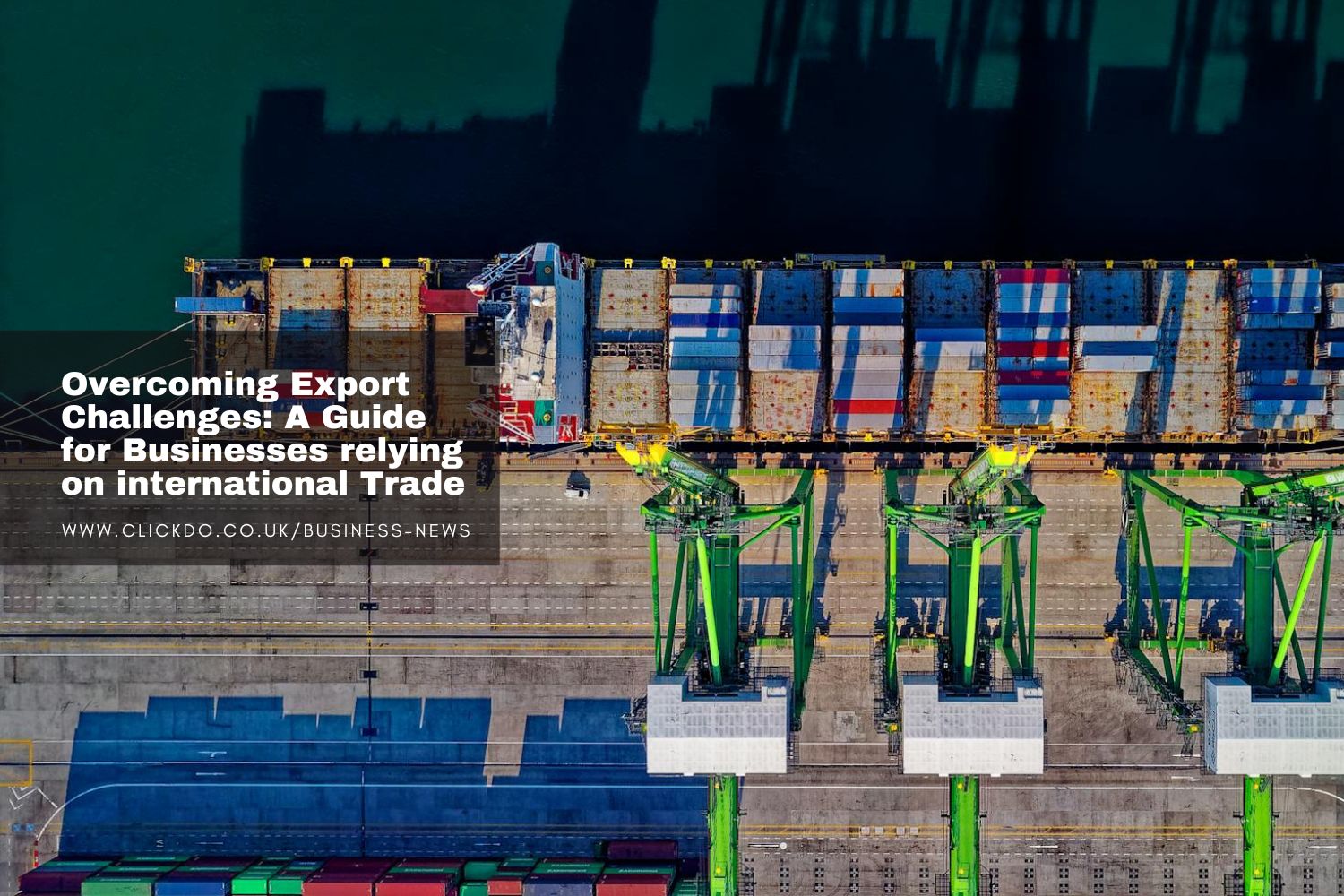
Overcoming Export Challenges: A Guide for Businesses relying on international Trade
Table of Contents
Exporting is a good way through which many companies can maximize profits, enhance their client bases, and foster sustainable development.
Nevertheless, although this is the case, it can be difficult for a business to export and move through all the complexities that come with such a task. This therefore demands some strategic choices as well as a lot of plans and preparations from these exporting businesses.
This article highlights some of the challenges related to exports in business, such as market research into exports, overcoming challenges with dealing in foreign exchange, and how to manage the risks involving payments for exported goods or services.
To be able to sell goods outside one’s country of origin, certain guidelines have been provided herein.
1. Exporting Market Research and Analysis
Exporting requires businesses to first overcome the challenge of identifying viable markets through comprehensive market research and analysis. The cultural, economic, regulatory, and socio-political features of the target market must be clear for one to make an intelligent choice about selling there. Businesses should overcome this challenge by investing in market research, consulting local industry experts, and using materials from trade associations, government bodies and international organizations.

2. Regulatory Compliance in Exporting
Businesses may find it challenging to navigate through foreign export market regulations particularly on matters regarding import/export procedures, customs requirements, product quality specifications, etc. Hence the issue of compliance with these regulations, including those concerning imports and exports as well as customs procedures becomes very complex.
Therefore, businesses should consider seeking advice from lawyers or specialized consultants in global trade regarding this matter. For this reason, they must ensure that they have followed any applicable standards or certifications on their products’ quality before selling across borders.
3. Logistics and Transportation in Exporting
Shipping, warehousing, customs clearance, and transport are some of the issues that make logistics difficult for most businesses in export trade. However, there are ways to overcome these challenges. These include partnering with trustworthy logistic service providers and freight forwarders who have experience in international shipping.
This can be achieved through implementing strong supply chain management systems, which will include proper control of inventory and application of technology solutions that can aid in easing the process and reducing any possible delays experienced by the business. There are variants of supply chain planning optimization which can be implemented in business if it is required.

4. Currency Exchange and Payment Risks in Exporting
The volatility of exchange rates and risks associated with payments are obstacles that exporting firms often come across in their business activities. Mitigating these risks calls for consideration of hedging options like forward contracts or currency options aimed at decreasing the negative effects arising from exchange rate volatility.
Moreover, it would be advisable for them to provide adaptable payment approaches, utilize safe payment means, and carry out some research on foreign purchasers to minimize such risks of non-payment and guarantee quick remittance of money.
5. Cultural and Communication Barriers in Exporting
The differences in culture and the communication hindrances may affect how there is trade, negotiation as well as marketing on foreign business deals. Business can overcome this by training employees culturally, employing locals who are fluent in English or using consultant services for that matter hiring those with knowledge about foreign languages and cultures, modifying its marketing strategies and adapting business operations to comply with prevailing consumer behaviors and customs. Effective communication and collaboration with local partners, distributors, and customers help achieve objectives in international markets.

6. Competitive Challenges in Exporting
When entering foreign markets, businesses often face tough competition not only from other local companies but also from multinational enterprises that have already established themselves in these regions. For this reason, it is important for companies to be able to compete effectively in the market.
They can achieve this by differentiating their products/services, determining what makes them special, and concentrating on providing clients with valuable offerings. Creating a reputable brand identity, offering high-quality goods or services, and delivering excellent customer support are some ways of overcoming competition and obtaining a larger portion of the market.
Closing Thoughts
In summary, although exporting exposes firms to many challenges, overcoming them is crucial to take advantage of immense international market potential. Business organizations can achieve this if they follow a strategy of carrying out extensive research on the market, ensuring adherence to legal requirements, optimizing their transport systems, managing currency conversions as well as overcoming payment obstacles; all aimed at expanding their business across borders through selling goods abroad. Properly planned investments accompanied by determination would enable businesses to overcome export difficulties thus opening new paths for them to succeed globally.
Author Profile
- Online Media & PR Strategist
- Blogger and Educator by Passion | Contributor to many Business Blogs in the United Kingdom | Fascinated to Write Blogs in News & Education I have completed a journalism summer course at the London School of Journalism and manage various blogs.
Latest entries
 FinanceMarch 28, 2025Enhancing Marketing Efficiency through Automated Billing Solutions
FinanceMarch 28, 2025Enhancing Marketing Efficiency through Automated Billing Solutions FinanceMarch 11, 2025When and How should you Apply for an LEI Register?
FinanceMarch 11, 2025When and How should you Apply for an LEI Register? EntertainmentFebruary 6, 2025From Start-Ups to Unicorns: Key Investment Trends in the Global Entertainment Sector
EntertainmentFebruary 6, 2025From Start-Ups to Unicorns: Key Investment Trends in the Global Entertainment Sector BusinessFebruary 3, 2025The Business of Cars: Navigating the Automotive Industry for Success
BusinessFebruary 3, 2025The Business of Cars: Navigating the Automotive Industry for Success

